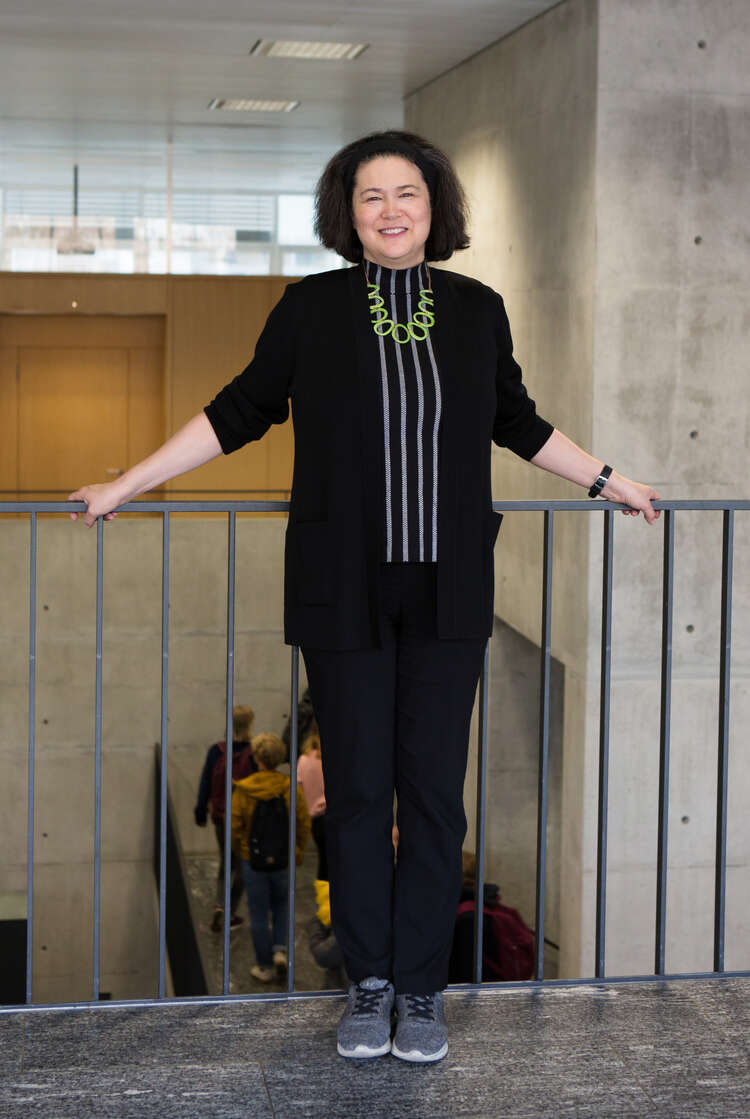Susan Mango, Professor and Research Group Leader
You have been active in research for more than twenty years. Why did you decide to pursue a career in science?
I love puzzles! I got into biology because I enjoyed the back and forth between data and hypothesis, and the puzzles presented by new data. I particularly like it when the data don’t quite fit our model: it tells us we are on the cusp of finding out something new. It is exhilarating to look at new data and realize you are the only person in the world who knows this new thing, and who has a new way to think about something that happens in the body.
Did you face any particular challenges or obstacles during your scientific career?
Yes, certainly! Everyone does – science is not a walk in the park. For women, I think it is especially hard because there are some who do not take women seriously, particularly when they are junior scientists. When I was a young faculty member, I was excluded from some of the discussions and opportunities that were offered to my male colleagues. But I learned that if I kept going, I could earn the respect of my peers and be included in future opportunities.
Why is gender equality in science/ STEM* important?
If you were fighting a war and I told you to get rid of half of your army, you would think I was crazy, right? But that is what we do if we exclude women from science. In my lab, I want the best possible team, and so I recruit people who are enthusiastic, curious, smart, and generous. I don’t care about their gender, and I also don’t care about their nationality, sexual preference, race or religion. I just want the best people, and it turns out my lab is very diverse because excellent scientists come in many flavors. Having people with different perspectives helps the lab in another way, because people have different approaches and different ways of seeing a scientific problem. We come up with better, more creative solutions when we are a diverse team.

We often see a gender gap at the level of Principal Investigator and Professors. Why and do you have ideas or examples to share how to close this gap?
I think there are two problems. One is a problem of juggling. The years of beginning a lab are the same years as starting a family, and often juggling career and family falls to the woman. One answer is to have help. That means, find a partner who is willing to share the responsibilities of raising a child, and include your parents or parents in law if they are interested in helping with child care, cooking or whatever help you need. I was lucky, I had both. Even so, it can be quite tiring at times because one is on 100% at lab and then on 100% at home too.
The second problem is confidence. I hate making generalizations, but in my experience, young women are less likely to be confident about themselves as scientists than young men. So one challenge is to convince them that they are as good as anyone else (which they are). Getting data or a paper is one great way to build confidence. Realizing that everyone has ups and downs, failed experiments, dead ends, is another. In my lab, we celebrate the small victories each week with a Winged Victory trophy that is passed from one lab member to another as they move a step forward. We also talk about the disasters, so it’s clear no one is alone.
Do you have any advice for early-career female researchers?
Two pieces of advice, based on the questions above: one is, keep going. If you find that you get overlooked some of the time, don’t give up. Keep plugging away at your work and you’ll be surprised how that leads to good things in the future. The other piece of advice is to find a partner who will share responsibilities at home, and perhaps family can help out too.
* STEM = Science, Technology, Engineering and Mathematics


